The Public Policy Fellowship Program – Main Course is an intensive 3-month program that comprises 20 sessions conducted on-site at DAV Shikshanam, Gopalapuram.
Eligibility – Anyone above 18 years of age with a reasonably good command over English.
Format – On-site at DAV Shikshanam, 212-213 Avvai Shanmugam Salai, Gopalapuram, Chennai – 600 086
Duration – 20 sessions across 10 Sundays
Broad Timeline – January – April
Registration Fee – Rs.2,500/-
Economic Development forms one of the fulcrum modules of the public policy fellowship program. Under this module, experts detail various aspects of India’s as well as Tamil Nadu’s economic development: past, contemporary scenarios and future roadmaps. Contours of the union budget, the state budget, policies such as the Goods and Services Tax (GST), Insolvency and Bankruptcy Code (IBC) are some of the themes discussed under this module across different sessions.
The Security module aims to cover both internal and external security under separate sessions. The internal security aspect covers regions such as Jammu and Kashmir, India’s northeast, and the states under the threat of Maoism. The aim is to unravel the historicity of India’s internal security challenges in these regions, assess what the current scenario is and objectively put into perspective the journey that needs to be undertaken to weed out any design of harming the nation’s security. The external security component explores India’s journey in the area of defence and an impact assessment by giving a 360 degree view of the making of India’s external security contours and challenges that lie ahead.
The current global information age is regarded as the 3rd industrial revolution by many experts. By the end of 2021, close to 40% of the world is expected to be on social media. The advent of 5G technology has been a catalyst of sorts for the current information revolution. With over 5 million plus websites, the importance of user generated content is now more than ever. The basic feature of this module is to give the learner an opportunity to understand Tamil Nadu’s e-governance initiatives, the latest trends in global technological advancements, a thorough analysis of Aadhaar (India’s unique identification) amongst others.
Education remains a key component of public policy making. Why education? Why is it important to train the minds to think and not just learn facts, are some of the important questions that this module seeks to answer. India’s education system and its journey until date form the basis of the sessions. Themes of this module include presentation of relevant global and national case studies to deepen understanding and a look at basic education as means to understand public policy.
In a vibrant democracy like India, understanding political science becomes imperative. In and through an analysis of India’s general elections and state elections, the module seeks to put into context why it is important to understand and study elections in India. While not restricted to India, the module also covers specific and special sessions from countries abroad such as the US presidential election to give a ringside view to understanding the modus operandi of how elections are conducted in countries abroad especially with differing systems such as the presidential form of governments.
Reforms, historicity of the constitution, its amendments and why they were undertaken, key laws, their formation and current status form the basic themes of this module. Judiciary is an important pillar of any country’s democratic ethos. In addition, this module takes the course of making the basics of the functioning of the judiciary more clearer. The roles and responsibilities as well as the relationship between the legislature, executive and the media with respect to the judiciary is also discussed.
Be it right to health or health assurance, the importance of health cannot be more pronounced. Understanding Tamil Nadu’s health apparatus and a deep dive into health policies in the state as well as the country form key themes in this module. Why public health policies play a key role in shaping global societies and how they contribute to a productive society are some of the other finer aspects that this rigorous module will detail. In addition the ways in which public policy as such impacts health is a highlight of this module.
In and through case studies and relevant reports, this module will rethink the importance of agriculture to India’s public policies. Each state has its own set of policies of thinking through agriculture, how to remove unnecessary clutches so that agriculture as a whole is paid attention to and there is win-win for the farmer and consumer. Importantly, through this module the focus will be on challenges that the Agriculture sector faces and what the state and union should do to overcome in order to enable the sector to be a comprehensive enabler for India’s economic development. Historicity around Independent India’s agricultural policies and the planning that was envisioned to implement these policies are important pillars of this module.
Media plays a crucial role in public policy formulation. This module across relevant sessions covers the role that media plays to influence people about different public policies that are in direct relation to India. While doing so, the module seeks to explore the role and responsibilities of media in India’s democracy in order to enable efficient public policy making. The contemporary dynamics of media in India, what role they are choosing to opt for in order to represent the interests of the country, its advancement will also be highlighted.
The contours of the global power axis from the pacific atlantic to the indo-pacific, how are Asian powers responding to mitigating the global challenges of today and which are the countries that are committed to doing global good that is for their own citizens as well as those from outside of their countries are some of the key themes of this important module. The past and present of international relations between countries and what are their determinants such as trade, culture, people to people exchanges, security, connectivity, communications and so forth will be areas of examination.

Director General of Artillery (Retd) Professor, Aerospace Dept, IIT Madras India's Defence Outreach: People, Land and Economic | Global Military Might

Managing Director, Synprosoft – Zoho Partner One Nation One Election: An Objective Overview | Analysing US Presidential Elections | Prospects: 2021 Tamil Nadu Assembly Elections
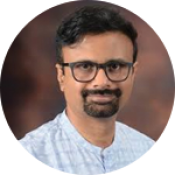
Chief Ideator and Founder, Ithought Goods and Services Tax: Policy Perspective | Financialization of the Society: Means to Social Justice
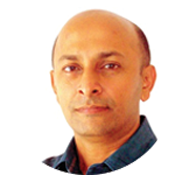
CEO, Chennai Smart City Limited Governance Structures: City

Senior Advocate, Supreme Court of India Reforms in the Judiciary
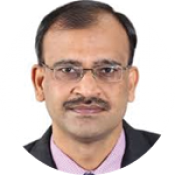
CEO, Tamil Nadu E-Governance Technology and its Relevance | Artificial Intelligence and Governance | Understanding Aadhaar Based Mechanism
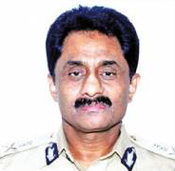
DGP, Crime Branch CID, Chennai Internal Security: Opportunities and Challenges

ISB Alum, China experience:9 years, Research Post Galwan Clashes: Taking Stock of India-China Relations

Lawyer, Chambers of Senior advocate R.Sankaranarayanan Agriculture Policy and Farm Laws of India

Public policy researcher Federalism: Contribution of State to a Nation's Growth
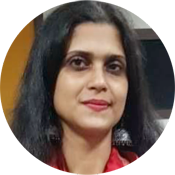
Senior Journalist Role of Media in Strengthening Democracy

Consultant Intensivist Critical Care, Kauvery Hospitals COVID-19: India's Response
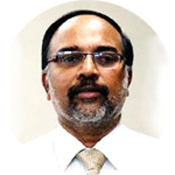
Director, Datta Educational Consultants Education: A Key Catalyst to Public Policy
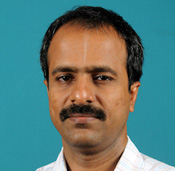
Head - Dept of Humanities and Social Sciences Role of Culture in Policy Making
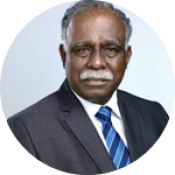
AVSM VM Chairman & President, The Peninsula Foundation Indian & Global Military might

CEO, Tamil Nadu E-Governance Technology and its Relevance

Founder and Ideator, iThought Analysing Tamil Nadu Budget
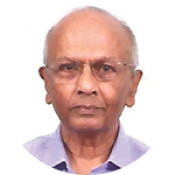
Former Union Secretary Analysing the National Budget
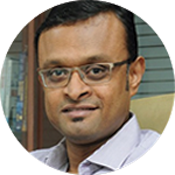
Former CEO and MD, Kasturi & Sons Ltd Partner, McKinsey & Company Make in India Innovations, Banking & Insolvency

Lawyer, Chambers of Senior advocate R.Sankaranarayanan Amendments to the Constitution

CEO, Chennai Smart City Limited Governance Structure: City and Rural

Synprosoft – Zoho Partner Analysing previous year’s Lok Sabha

Director, Datta Educational Consultants Implementing National Educational Policy
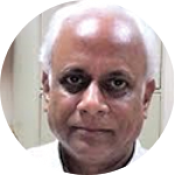
Professor in-charge, Centre for Technology and Policy, IIT (M) Challenges to the Healthcare Systems
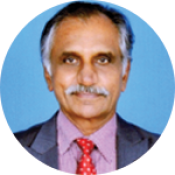
Director, Chennai Centre for China Studies Studies on India China Relations
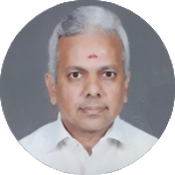
Senior Advocate, Madras High Court Indian Judiciary – Past, Present & Future
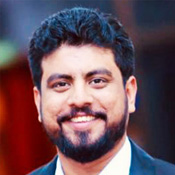
Convenor – Tamil Nadu Young Thinkers Forum Indian Diaspora – Incredible India to Incredible Indians
212-213 Avvai Shanmugam Salai, Gopalapuram, Chennai – 600 086
+91-73582 73735
